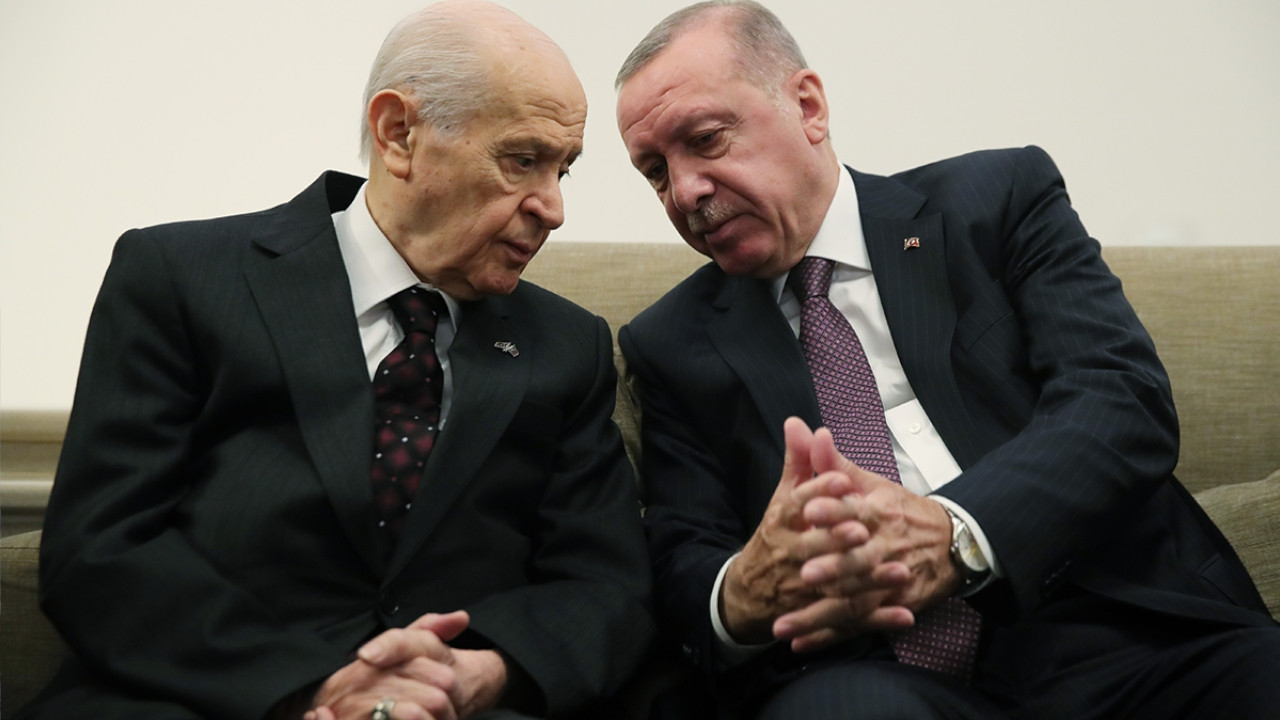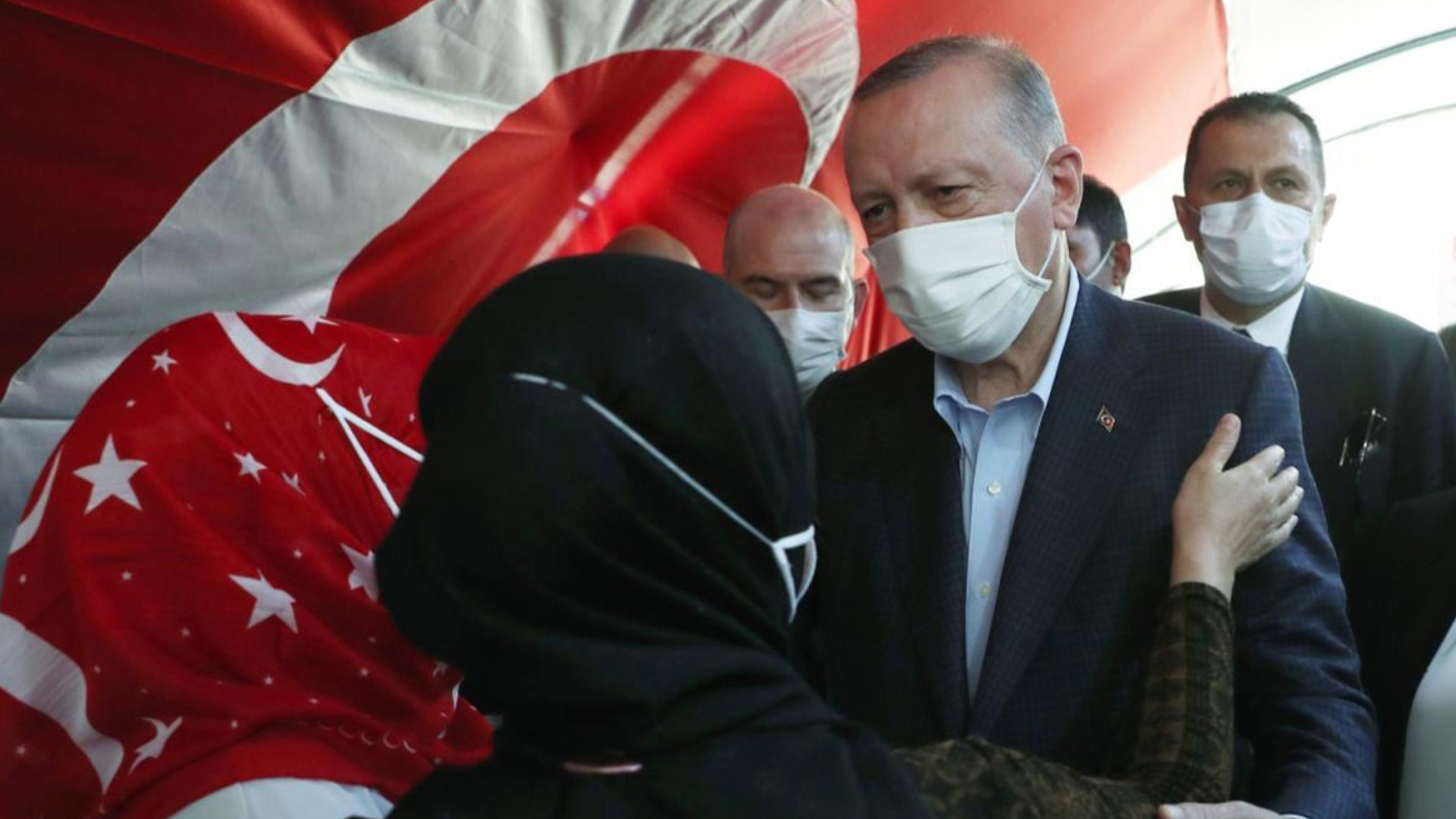What does lowering election threshold down to 7 percent mean for Turkish politics?
President Erdoğan is no fool, and he his best known for his apt pragmatism. As long as he and his party can remain in charge, he can form an alliance with anyone, even with his enemies - except the CHP. And even if he sees he has lost everything, he has to strike a deal to ensure his immunity.
After the military coup in 1980, the Turkish generals set the threshold for political parties to enter parliament at 10 percent of the general vote. Turkey’s high election threshold is rather unique in comparison to other parliamentary and presidential systems throughout the world, the second highest threshold being in Russia, with 7 percent.
Now, President Erdoğan and his ally MHP leader Devlet Bahçeli announced the election threshold would be lowered to 7 percent. Why now? And how will it affect Turkey’s political scene?
Bear in mind that for 41 years, the 10 percent threshold was upheld, resulting in the largest parties getting more votes and smaller parties shrinking.
The reason was obvious: keeping Kurdish politicians and mostly left-leaning parties out of parliament, and thereby favour central right parties.
And it worked, since many voters acted pragmatically and voted for “stronger, bigger” parties rather than for their genuine choice. Kurdish politicians only had a chance to enter parliament through being independent candidates, while other bigger parties usually devoured independent politicians. Which all added up to Turkey’s democracy struggle.
The game changer took place in the 7th June 2015 elections. For the first time, the pro-Kurdish party HDP, backed by a majority of the Turkish left, green and other minor parties gained 13.1 percent of the general vote, becoming the country’s third biggest party.
Another first: the AKP lost its majority in parliament and had to find an ally to form a government. In Prime Minister Ahmet Davutoğlu’s words back then, the “exploratory talks” between the parties were unsuccessful. Shortly thereafter, a new election was announced. The peace process in tatters, Turkey once again succumbed to armed conflict, and suffered a string of terror attacks.
This was also the beginning of the AKP-MHP alliance. Ever since the coup attempt in 2016, followed by regime change under the State of Emergency rule, Turkey has been deemed an authoritarian state and its society has been ever more polarized.
Yet as the suppression of dissent grows and economic woes mount, the AKP-MHP alliance has been losing sway. The AKP still has the majority of votes, but it has become apparent that its alliance with MHP is tumbling.
The polls indicate that the far-right MHP has reached a critical stage, and would be unable to gain the 10 percent necessary to enter parliament. That is why Bahçeli pushed for lowering the threshold, probably counting on the HDP being shut down and being pushed out of the equation. He is aware that President Erdoğan might seek other allies, “even with the Kurds” but his job is to prevent that.
President Erdoğan is no fool, and he his best known for his apt pragmatism. As long as he and his party can remain in charge, he can form an alliance with anyone, even with his enemies - except the CHP. And even if he sees he has lost everything, he has to strike a deal to ensure his immunity.
The talk in Ankara is - as it was reported by the daily Cumhuriyet – that the AKP is unhappy with MHP pushing for a 5 percent threshold.
Now that could really rock the boat. The AKP might form an alliance with Saadet Party and the newly founded Deva Party led by Ali Babacan. And maybe back a pro-Kurdish party, which would be an alternative to the HDP?
In short, the idea is to blow the CHP-İYİ-Saadet alliance and get rid of the MHP. But the HDP, with its 10 p (+/- 1) will still be the most critical party in the following elections. The HDP is demonized by AKP-MHP regime and not accepted openly by the oppositional parties, as IYI Party gets to say the last word.
In short, Turkish politics is mired once again in the Kurdish problem. It is no coincidence that President Erdoğan went to Diyarbakır and that the AKP and PKK are allegedly in touch, once again.
Can Erdoğan once again turn the wheel and design the elections so neatly that he can’t fail? Calculations on the table can account for some of voters’ behaviour but not all of it.


 AKP, MHP agreed to lower election threshold to 7 pct, says far-right leader BahçeliPolitics
AKP, MHP agreed to lower election threshold to 7 pct, says far-right leader BahçeliPolitics Erdoğan's recent attempt to reach out to Kurds: an election investment?World
Erdoğan's recent attempt to reach out to Kurds: an election investment?World